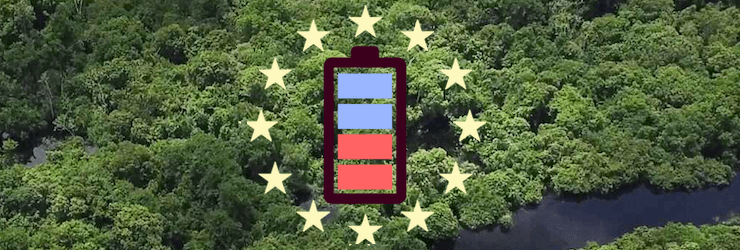How sustainable is a service or a product? This question is becoming more and more important in purchasing decisions and is therefore occupying more and more companies. But what criteria can be used to reliably assess the sustainability of a product over its entire life span and beyond? How can the necessary data be collected along the value creation network? And how can this data be used meaningfully to support companies in their decision to design their products in a socially and environmentally compatible way? Researchers at the new Christian Doppler (CD) Laboratory for Sustainable Product Management in a Circular Economy are dealing with these and other questions.
The laboratory, which was opened at the University of Graz in April this year, is financed by the participating companies and the Austrian Federal Ministry for Digital and Economic Affairs (BMDW). Like all CD laboratories, the new CD laboratory in Graz conducts practice-oriented basic research for concrete entrepreneurial research questions. To this end, the scientists work closely with innovative industrial partners, including iPoint.
Which data that could be of interest for a sustainability assessment is already collected?
The new Laboratory for Sustainable Product Management in a Circular Economy researches solutions for the sustainability assessment of products and services. More precisely, the new CD laboratory collects data on the entire life cycle of products and services and defines corresponding principles. Surveys of companies with a focus on the automotive and packaging industries that want to develop further in the direction of circular economy form the basis. The focus is on the question of which data that could be of interest for a sustainability assessment – e.g. energy demand, emissions, origin of raw materials, working conditions, waste, transport routes – is collected by the companies. It will also determine whether the previous records are sufficient or whether important information has yet to be collected. Once the question of what requirements a sustainable product must meet has been clarified, the researchers will devote themselves to developing efficient methods for collecting, networking, and evaluating the relevant data.
Digitalization, IoT and Big Data – new possibilities for research
33 zetabytes of data were generated worldwide in 2018 – and the trend is rising. “Digitalization opens up completely new possibilities for research here”, emphasizes sustainability researcher Prof. Dr. Rupert Baumgartner, head of the new laboratory at the University of Graz. “We will investigate what the Internet of Things and Big Data can do for our purposes. After all, the research should also have an application-oriented benefit for the economy – and as a result for society. With our findings, we want to create the basis for the development of practical tools that companies can use as a decision aid for sustainable product management in the Circular Economy”, emphasizes Baumgartner.To this end, the laboratory is working with iPoint and other partners. “There is an intensive exchange of knowledge between iPoint and the CD laboratory”, notes Andreas Schiffleitner, who heads the Sustainability Competence Center at iPoint-Austria. “With our knowledge of software solutions and services in the area of data collection in the supply chain, life cycle assessment, compliance with environmental and social regulations, and end-of-life simulation, we contribute to the research activities and successful implementation of the CD laboratory goals.”
Results are not only of scientific, but also of practical relevance and lead to innovative products
This knowledge and experience are mainly based on numerous projects with iPoints customers around the globe. Thereby, iPoint enables the CD laboratory to conduct online surveys and expert interviews with this customer base, collect requirements, validate concepts, and test prototypes. “Through the close cooperation of the CD laboratory with iPoint and ARA Altstoff Recycling Austria, it can be ensured that the results are not only of scientific, but also of practical relevance and lead to innovative products and services, e.g. new software solutions for the evaluation and sustainability-oriented design of products in the context of recycling management”, emphasises Baumgartner. “With our findings, we want to create the basis for the development of practical tools that companies can use as a decision-making aid for sustainability and circular economy”, Baumgartner continues.
What can you expect? New instruments, methods and concepts
Expected results of the CD laboratory, which runs until 2025, are instruments, methods, and concepts for the collection of ecological and social data on products and services from the supply chains, the use phase and the disposal phase or recycling, for ecological and social evaluation and design of such products and services, and for using the collected data for further applications (e.g. reporting, compliance management).






